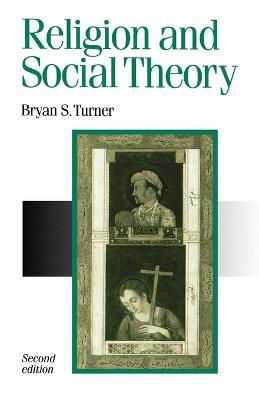Published in association with Theory, Culture & Society
1 primary work • 4 total works
Book 46
This Second Edition, now available in paperback, includes a new Preface which reviews the scholarship on Weber since 1981. The book also provides a survey of the strengths and weaknesses of the major sociological approaches in the post-war period.
Social theories of religion are explored through a resolutely comparative and historical analysis of the Abrahamic faiths - Judaism, Islam and Christianity. Relating comparative religion to the social context of individualism, civil religions and political legitimacy, the book makes a major contribution to the analysis of conflict and consensus in social systems.

